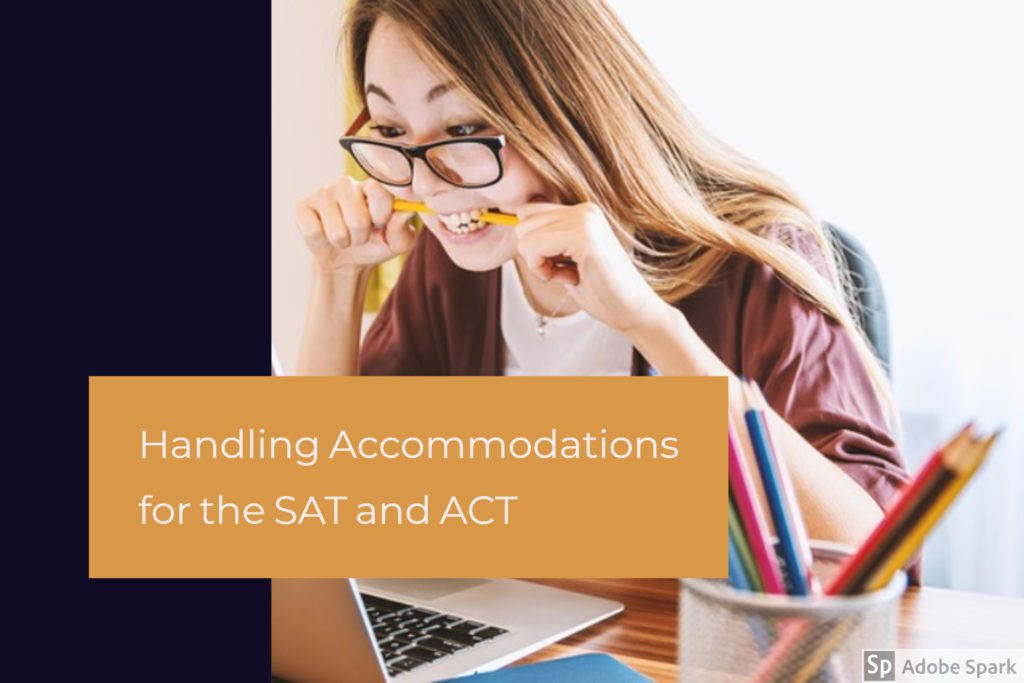
Getting accommodations on high-stakes standardized tests is no easy task, especially if your child is a high-achiever and has been able to compensate for his or her disabilities until now. Fortunately, during the Obama administration there were some positive legal developments which have made the law both clearer and more favorable to high-achieving applicants. When testing boards deny accommodations to high-achievers, it tends to be for the similar reasons. Here are those reasons and some strategies to combat those denials.
“Eleventh Hour” Disabilities
Testing Boards get hundreds of applications for extended time accommodations per each test sitting and they often don’t have time to carefully review each application. Naturally, they tend to skim for what they consider red flags to disqualifying an applicant. One of those red flags is a late diagnosis. Boards derisively term those late diagnosis “eleventh hour” disabilities because they seem to have developed conveniently around college prep time.
But the truth is that some high-achievers have been disabled throughout their educational careers but have been able to coast through because the work was not very challenging for them. And sometimes a legitimate anxiety or emotional disorder will develop in high school.
The best way to combat a denial in this situation is to provide them with documentation (i.e., school records, evaluations, physician letters) proving that your child had symptoms for years, even if they were recently diagnosed. Using bullet points write about what your child has had to do to compensate for his or her disability, such as giving up participating in extracurricular activities so that they have more time to study. If the disability is psychological or emotional and has legitimately developed recently, document that too.
ADHD or Other Disabilities Which Are Difficult to Reliably Document
Because there’s no simple test for ADHD and its symptoms can often be confused with other disorders, testing boards often look askance at applicants for accommodations whose only disability is ADHD. Anxiety, depression and certain types of learning disabilities can also be difficulty to document, especially with high-achievers.
The Americans with Disabilities Act requires that to be eligible for accommodations a disability must “substantially limit” a major life activity, such as learning, reading or concentrating, as compared with the general population.” Most applicants need a comprehensive psycho-educational evaluation demonstrating the extent to which their disabilities limit them academically. Generally, that means that you need to show with numbers that your child’s disability causes him or her to perform in certain areas at or below the 16th percentile.
Conclusion
Decisions by testing boards are often unpredictable because they review hundreds of applications for accommodations for each test sitting, and don’t have time to carefully review each student’s circumstances. While the most critical aspect of an application is documenting the educational history of the disability and/or it’s symptoms, parents should present the documentation in a clear and concise way in a cover letter. To make the information readily accessible, cover letters should be very well-organized, sectioned with headers and detailed with bullet points under each section. Attach the documents you refer to the letter.
The law governing testing accommodations is fairly complex, and it would benefit you to hire an attorney for a consultation or to write a cover letter so that your child’s unique educational history can be clearly and persuasively presented in a legal context. However, if you’re not able to hire an attorney, it would go a long way to write your own cover letter presenting the important information described above in a clear and concise manner.
For more on the Americans with Disabilities Act, which sets the legal standards for accommodating students applying for accommodations, see this article.
_______________________________________________________
Today’s guest post is from Allison Hertog, one of only a handful of attorneys in the country who has a Masters degree in Special Education. She has successfully represented students applying for college and graduate school entrance exams nationwide, even if they’ve been denied more than once. Her law firm is Making School Work, P.L. and you can reach her at Allison@MakingSchoolWork.com.
